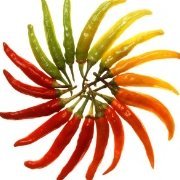About Worms As Fish/animal Feed
-
Recently Browsing 0 members
- No registered users viewing this page.
-
Topics
-
-
Popular Contributors
-
-
Latest posts...
-
66
UK 474 Arrested at London Protest Against Palestine Action Ban
You conveniently left out the line after, saying that you're not the only one. If you're not a bigot it's probably best not to say that you are. -
85
While Trump fails, Carney outsmarts him once again
EDUCATION 🤣🤣🤣🤣 do you know how far down the list of education the USA is in the world? You'd be challenged to educate any other country in the world 🤣🤣🤣 -
122
Middle East Israel Masses Troops Near Gaza as Ground Invasion Looms
Which is another Strawman. Packers comment was not referring to the State of Israel but to warrants for the arrest of Israeli citizens. This might help you understand the issue: https://www.ecchr.eu/fileadmin/Q_As/ECCHR_QA_arrest_warrant_ICC_Netanjahu_Gallant_042025.pdf -
85
While Trump fails, Carney outsmarts him once again
What's the reason I moved to Cambodia troll? What you dream about and raise constantly? -
98
Dr. Phil vs Two Lefty's, Maher & Steven A.- ICE Raids...
its not all about you though is it, just wait and see how it all turns out. You are an Aussie aren't you ? Sky news Australia is your friend "Lefties losing it" would give you a more balanced view , or "The Power Hour" Its certainly better than the Sky "news" that we are served up back in the UK -
85
-
-
Popular in The Pub












Recommended Posts
Create an account or sign in to comment
You need to be a member in order to leave a comment
Create an account
Sign up for a new account in our community. It's easy!
Register a new accountSign in
Already have an account? Sign in here.
Sign In Now